A recently released report on clinical care software in residential aged care demonstrates the breadth of disparate technology software across residential aged care and reinforces the need for greater data standards across the sector according to the Digital Health Cooperative Research Centre (DHCRC).
Aged Care Industry Information Technology Council (ACIITC), in collaboration with the Australian Digital Health Agency (ADHA), last month released a report on the ‘Residential Aged Care Use of Clinical Care Systems’.
The report found that whilst residential aged care providers are using multiple digital devices there was limited integration of these within an organisation, and that only a small majority of providers believed their current clinical software was providing effective functionality. The integration with My Health Record is underway, and more recently gaining momentum, whilst a clear majority reported their clinical information software did not integrate with visiting clinician (GP) software.
This lack of integration was attributed to the need for standardised terminology across the sector, resources, minimum standards for technology platforms and the need for providers to engage in research and development activities with respect to clinical software.
DHCRC CEO Annette Schmiede said this latest report further added to the growing recognition of the gap that providers need to address when considering the role of digital technology in delivering better quality of care for older Australians.
“This report reinforces the challenges facing the aged care sector with the lack of data, terminology and conformance standards; and the continuity of care issues that is a whole of health and care issue that must be addressed,” Ms Schmiede said.
Industry standardisation on the horizon
One of DHCRC’s flagship projects, Aged Care Data Compare Plus, is looking to address many of the challenges identified in this report by demonstrating the benefits a standardised dataset can deliver.
Aged Care Data Compare Plus will test a prototype aged care quality indicator application developed by CSIRO and the University of Queensland. The app uses the HL7 FHIR data exchange standard to extract data from Regis Aged Care’s clinical information system, AutumnCare, in a consistent, secure format to support the calculation of evidence-based quality indicators.
“This a critical initiative that was identified in the Royal Commission into Aged Care Quality and Safety as an exemplar of the type of innovation required to help reform the aged care sector,” Ms Schmiede said.
“We are now looking to garner broader industry and sector support for an evidence-based quality benchmarking and reporting solution that the whole industry can get behind.”
“There are many complex issues around privacy, security, compatibility, but this is exactly what the DHCRC was established to do; building the evidence-base to demonstrate the value and application of digital health innovations for doctors, clinicians, patients and governments.”


